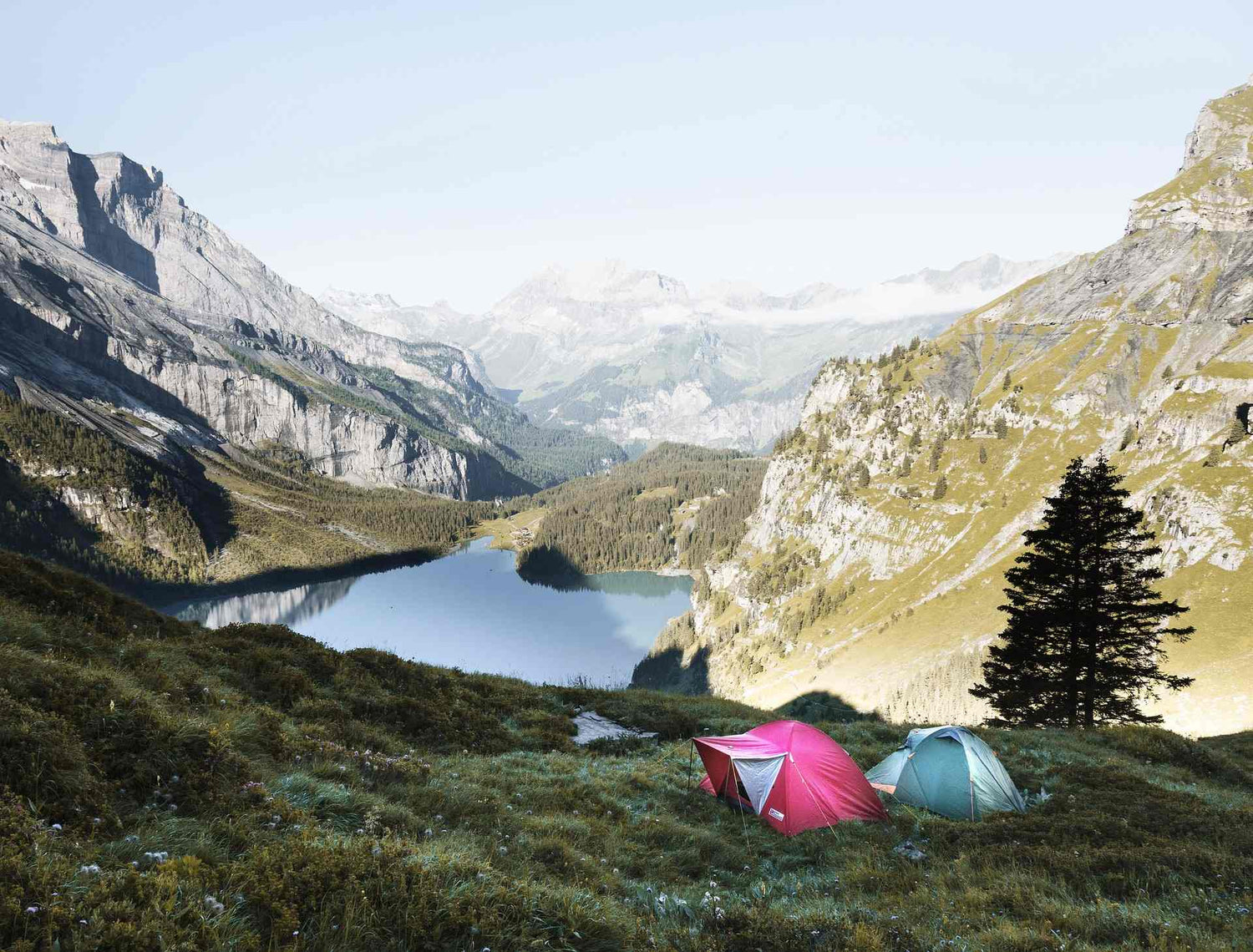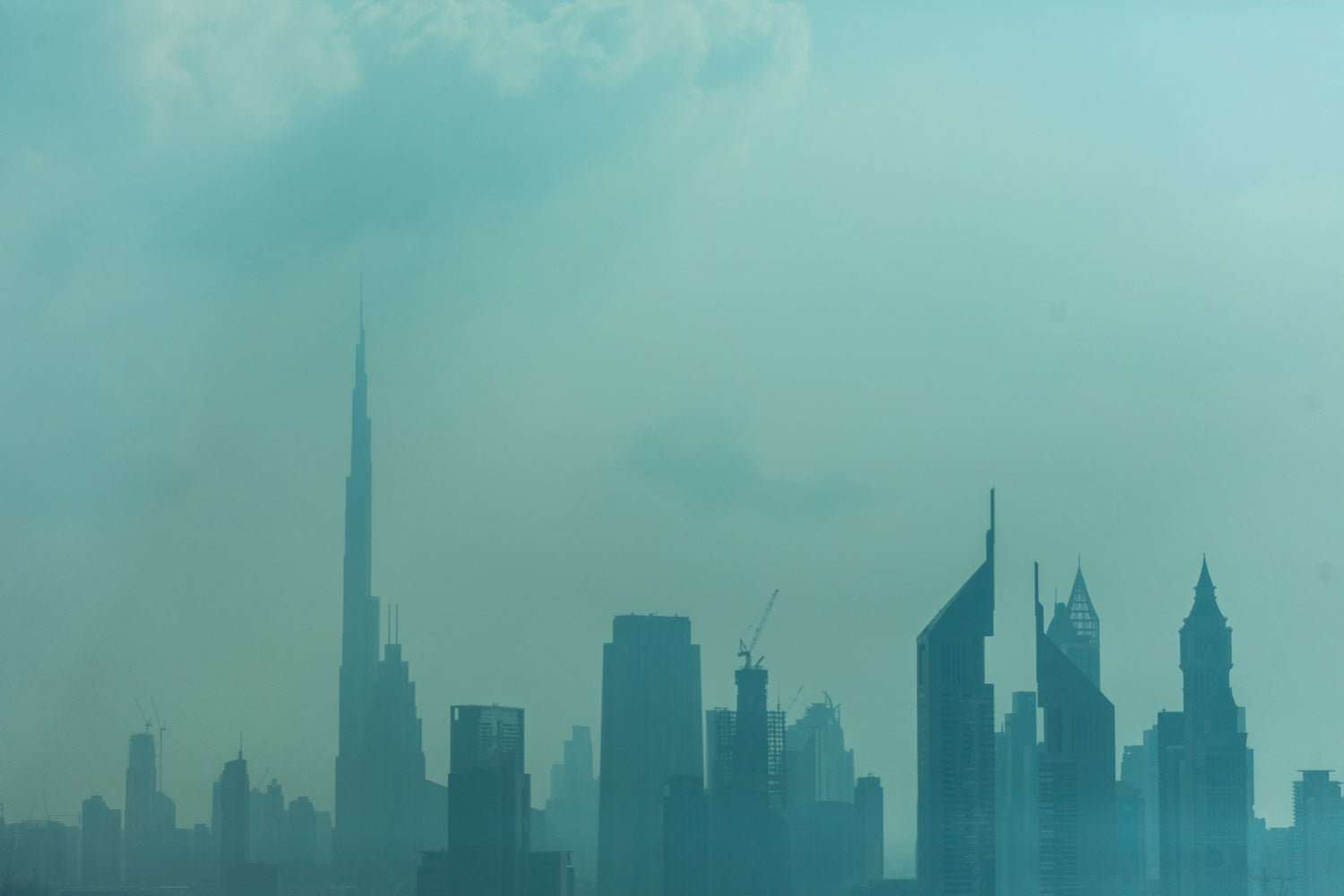Just stop in the wilderness and spend the night wherever you like - that's the idea of wild camping. Unfortunately, it's not quite that simple in reality. In many European countries, wild camping is subject to strict rules or is even prohibited altogether.
You can find an overview of the legal situation regarding wild camping in Europe in this article.
What is wild camping anyway?
Wild camping describes spending the night in a motorhome or tent away from official pitches and campsites. It usually involves camping in the great outdoors.
For many travelers, this form of camping means a maximum feeling of freedom and flexibility. It is particularly popular with nature-loving camping enthusiasts who want to spend a quiet vacation away from tourist hotspots and without direct camp neighbors.
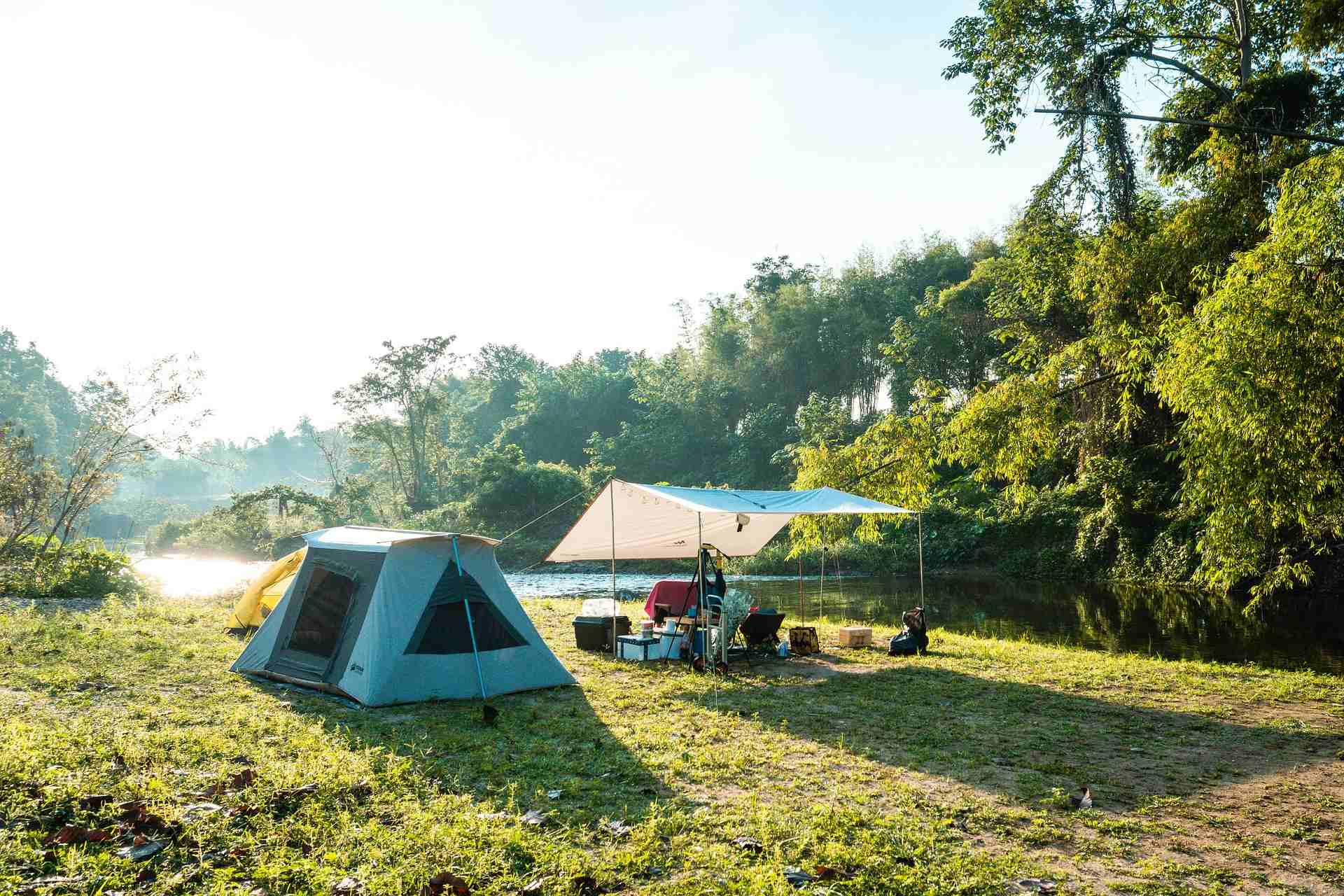
Is wild camping allowed?
Whether wild camping is allowed or not is actually not so easy to answer. The legal situation is very confusing and varies greatly from country to country. The basis for wild camping in Europe is the so-called "Everyman's Right". But beware: this does not apply in all countries.
What the Everyman's Right says
Everyman's Right grants all people the basic right to enjoy and freely use nature and wilderness. In addition to the right to enter, for example for hiking, overnight stays, for example in a tent, are also permitted. However, this is limited to a maximum of one or two nights.
The right of public access does not apply in national parks or in cities. One of the most important conditions is that consideration is shown for nature and the locals at all times.
Wild camping with a motorhome
The Everyman's Right only applies to hikers and cyclists who want to set up a temporary camp in the countryside. You are not allowed to drive and park your caravan or motorhome just anywhere. Instead, look for a public parking lot or a safe spot on the side of the road.
Wild camping in a motorhome is usually only permitted for one night. So don't get too comfortable and continue your journey the next morning.
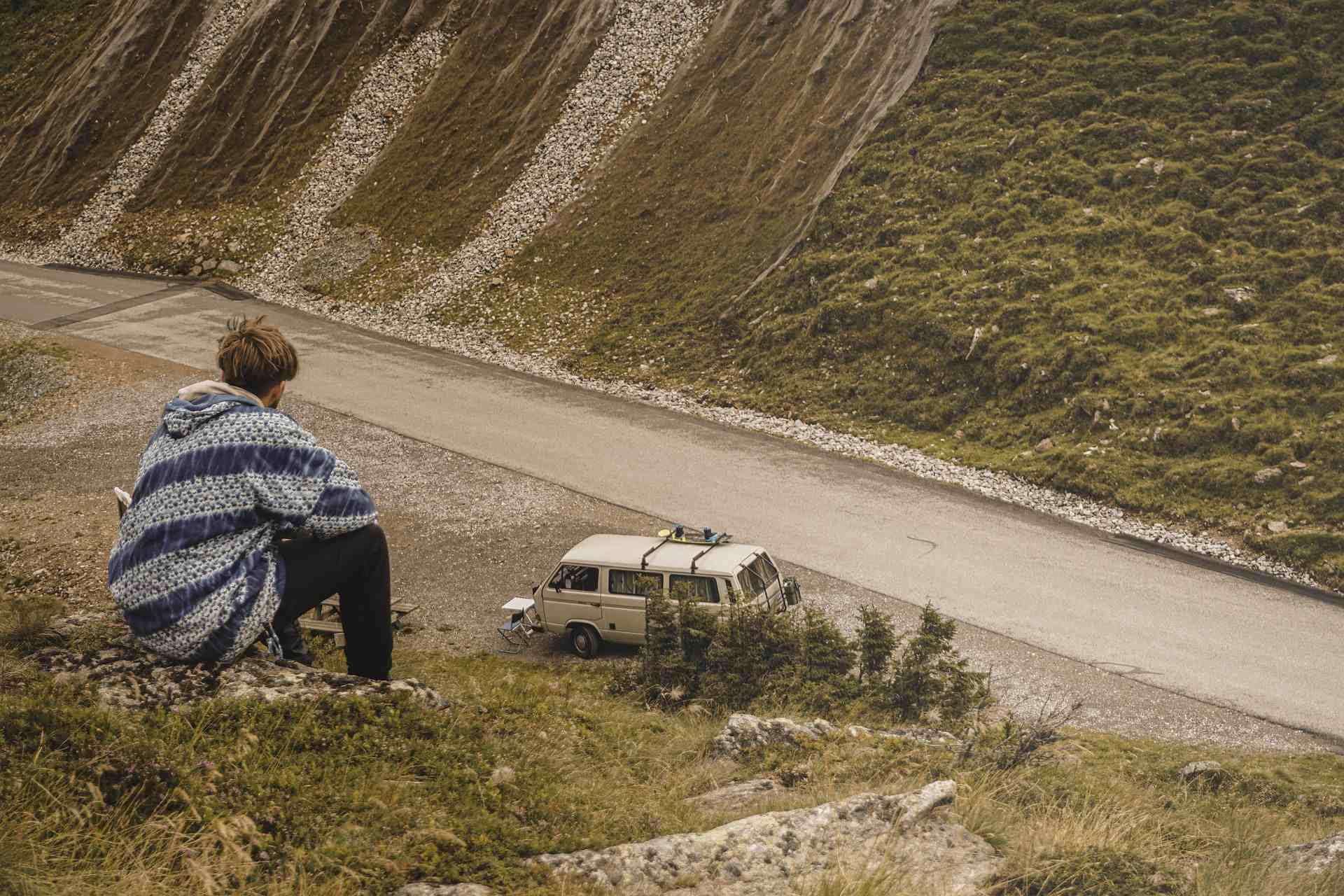
Sleeping in the car
Sleeping in the car, for example during a road trip, is generally not prohibited. As with wild camping with a caravan, it depends on where you park your car and how long you make yourself at home. Pay attention to the road traffic regulations, avoid stopping bans and private properties and limit your stay to one night.
Wild camping in your car is not without danger. Find a safe parking space, make sure you have a sufficient supply of oxygen and snuggle up in warm blankets. It can quickly get very cold in the car, especially in winter. Gas heaters, gas stoves or car heaters are not a solution when spending the night in the car - these devices should never be left unattended and there is even a risk of suffocation.
Camping in the great outdoors
Camping inthe wilderness is the epitome of wild camping: simply pitch your tent in a meadow, field or forest and spend the night in the middle of nature. Whether this camping adventure is permitted is regulated individually in each country. So before you set up a tent camp, always familiarize yourself with the local regulations.
Spending the night in a bivouac
A bivouac is an overnight camp in the open air, without a tent, but simply in a sleeping bag, on a sleeping mat or in a hammock. A tarp can also be used as weather protection.
Bivouacking is not clearly regulated by law. Anyone camping under the stars in a sleeping bag is therefore operating in a legal gray area. However, an unplanned emergency bivouac, for example if you are surprised by bad weather during a hike or are too exhausted to continue your journey, is generally permitted. Deliberate bivouacking, on the other hand, is not welcome and may be interpreted as unauthorized wild camping.
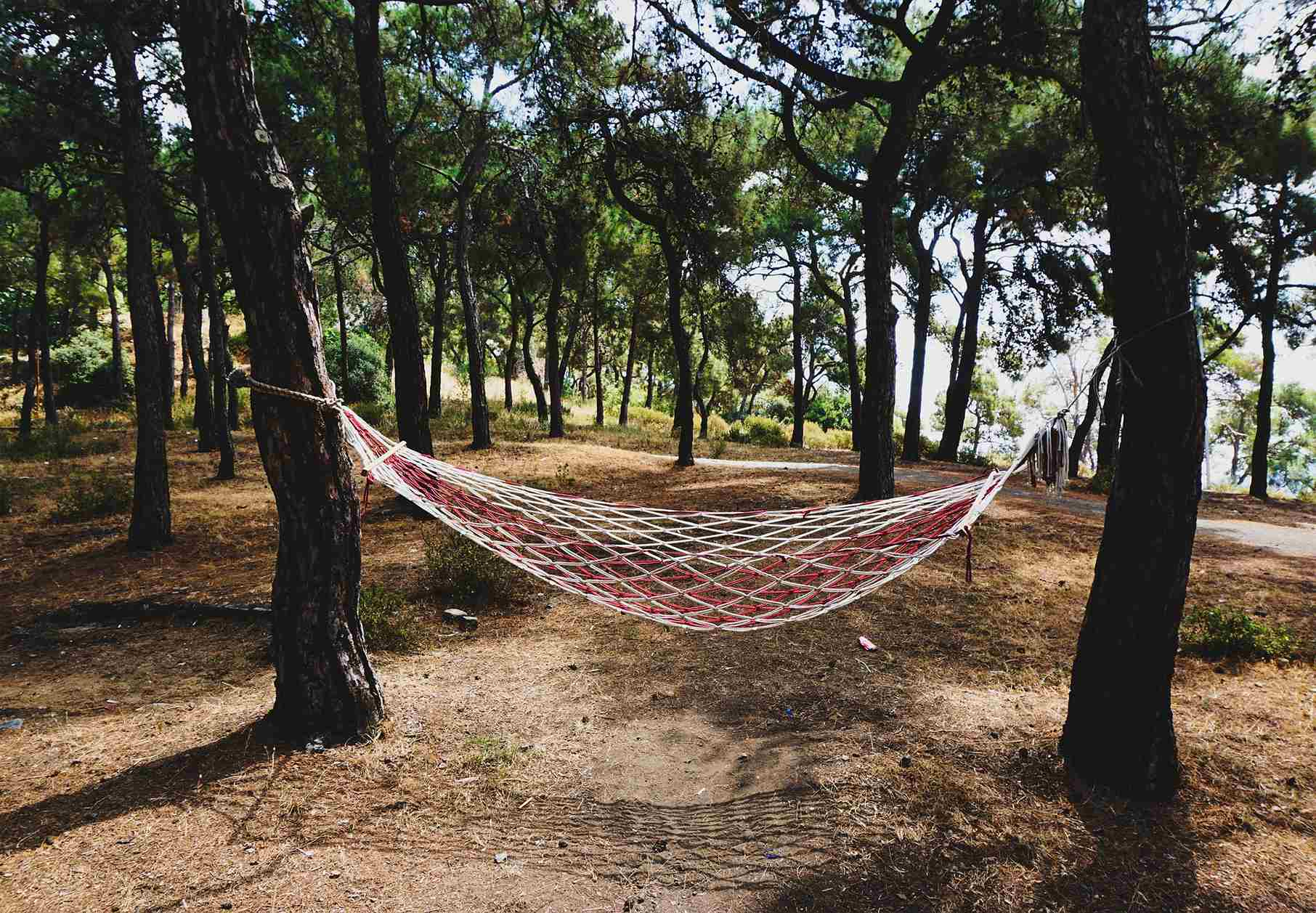
Sleeping in the forest
Forests, hunting and nature reserves and national parks are taboo for wild camping in most countries. If you still don't want to do without it, contact the respective forest owner or forestry authority and ask for permission.
Otherwise, there are also some forest areas that are explicitly approved for wild camping. This is the case in Poland, for example.
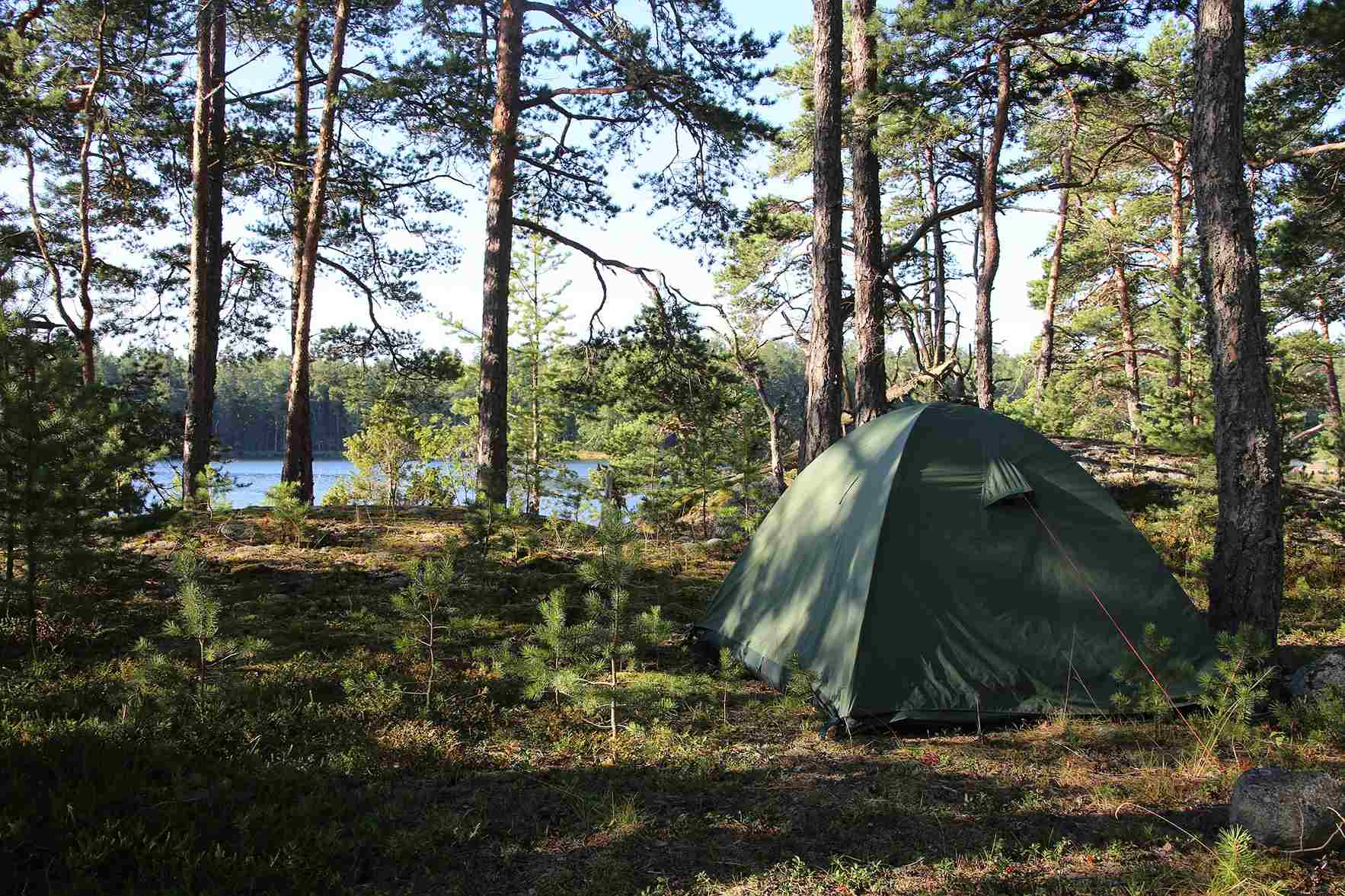
Spending the night in the field
If you want to spend the night in an open field, you should stay away from private land - or get permission from the owner. In any case, camping is prohibited in agricultural fields so as not to cause any damage.
Where is wild camping allowed in Europe?
As we have already mentioned, the regulations on wild camping vary from country to country - there is no uniform regulation in Europe. In most countries, wild camping in the countryside is either completely prohibited or strictly regulated and strictly controlled. If you are caught camping without permission, you can expect to pay fines, some of which are high and can quickly exceed your vacation budget.
To help you find out what you should look out for as a wild camper in European countries, here is a brief overview of the current country-specific rules.
Countries that are good for wild camping
In the Scandinavian countries of Norway and Sweden, as well as in Scotland , everyman's right applies. This means that wild camping is permitted - with a few exceptions. In these countries you will find many good places for wild camping, whether on the coast with a view of the sea or on picturesque lakes against an impressive mountain backdrop.
Wild campers also get their money's worth in the Baltic states (Estonia, Latvia and Lithuania): camping is possible on any public land if it is not expressly prohibited.
The situation is similar in Iceland: as long as you are not in national parks, residential areas or on private land, wild camping is permitted.
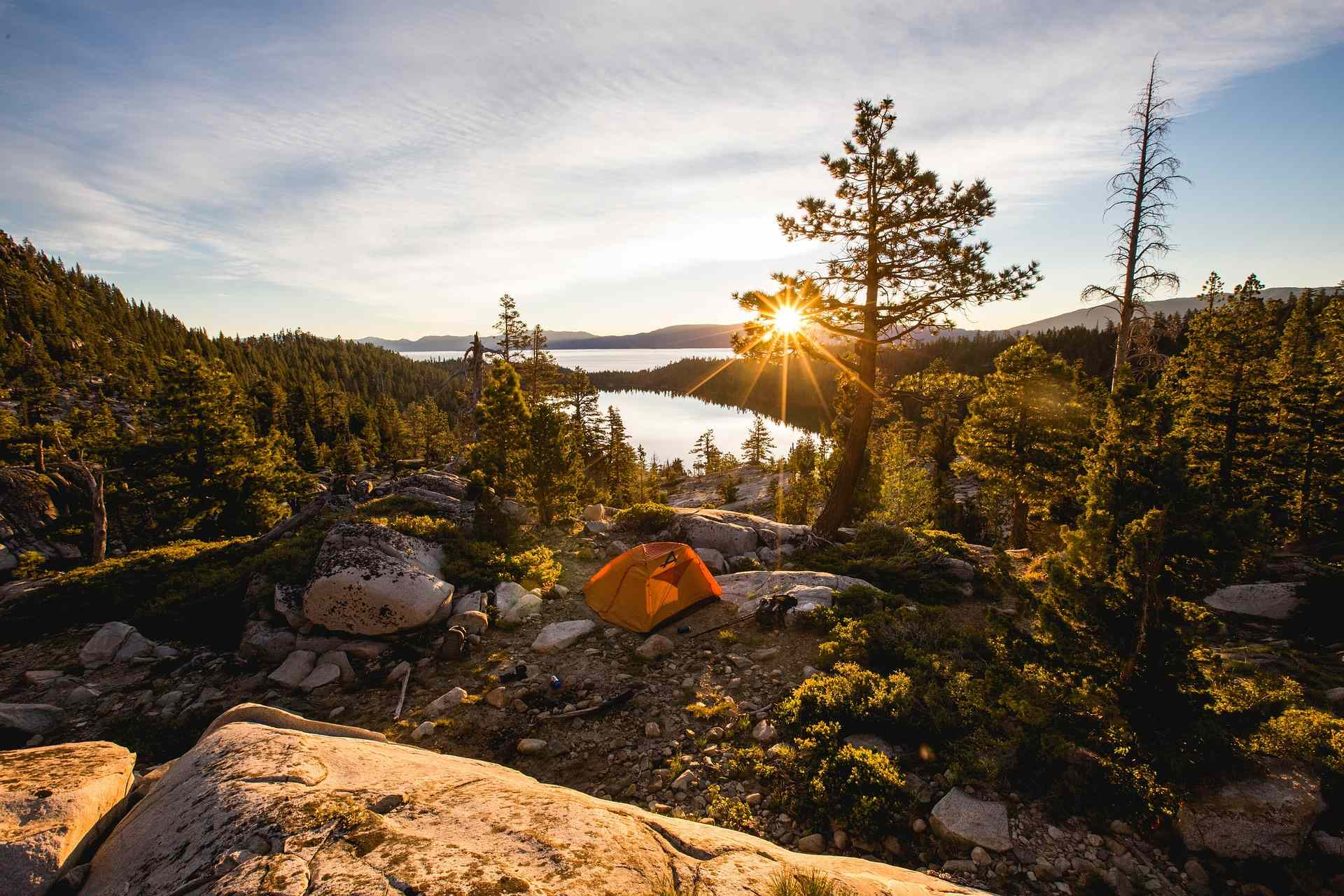
You can camp wild in these countries with some restrictions
In countries such as Poland, Switzerland and Portugal, you can also go wild camping away from campsites, but in some cases only in designated areas and subject to strict rules. In Switzerland, the legal situation is also different in each canton. Therefore, always find out about the applicable regulations in advance or directly on site.
Where wild camping is prohibited (with exceptions)
In Italy, France, the Netherlands and Eastern European countries, camping in the wilderness is generally prohibited. There are some exceptions in Denmark , but these are subject to strict rules. In Spain , wild camping is subject to regional bans. Where it is permitted, you usually have to obtain an official permit.
In Germany, too, things look rather bad for nature-loving campers: Wild camping with a tent is not permitted even away from nature reserves and can result in a charge depending on the federal state.
The situation is a little clearer for caravans: it is not normally a problem to spend the night in a motorhome at rest areas and state parking lots - but only for one night to relax. This is perfectly fine for a short stopover, but for an extended camping vacation with the whole family, you should use official sites.
But you don't have to give up camping in the great outdoors altogether: in many places there are now also so-called trekking sites, designated wild camping sites, where you can stay overnight free of charge or for a small fee.
What are the penalties for wild camping?
Again, the answer is: the penalties for unauthorized wild camping vary from country to country in Europe - and sometimes even from state to state.
In Germany, wild camping is punishable as an administrative offense. In addition to warnings of up to 100 euros per person, high fines of 500 to 2500 euros can be expected, depending on the severity of the offense. The amount depends on whether you are wild camping with a tent or caravan, where you are staying and for how long. The fine is particularly high if you endanger or actively damage nature.
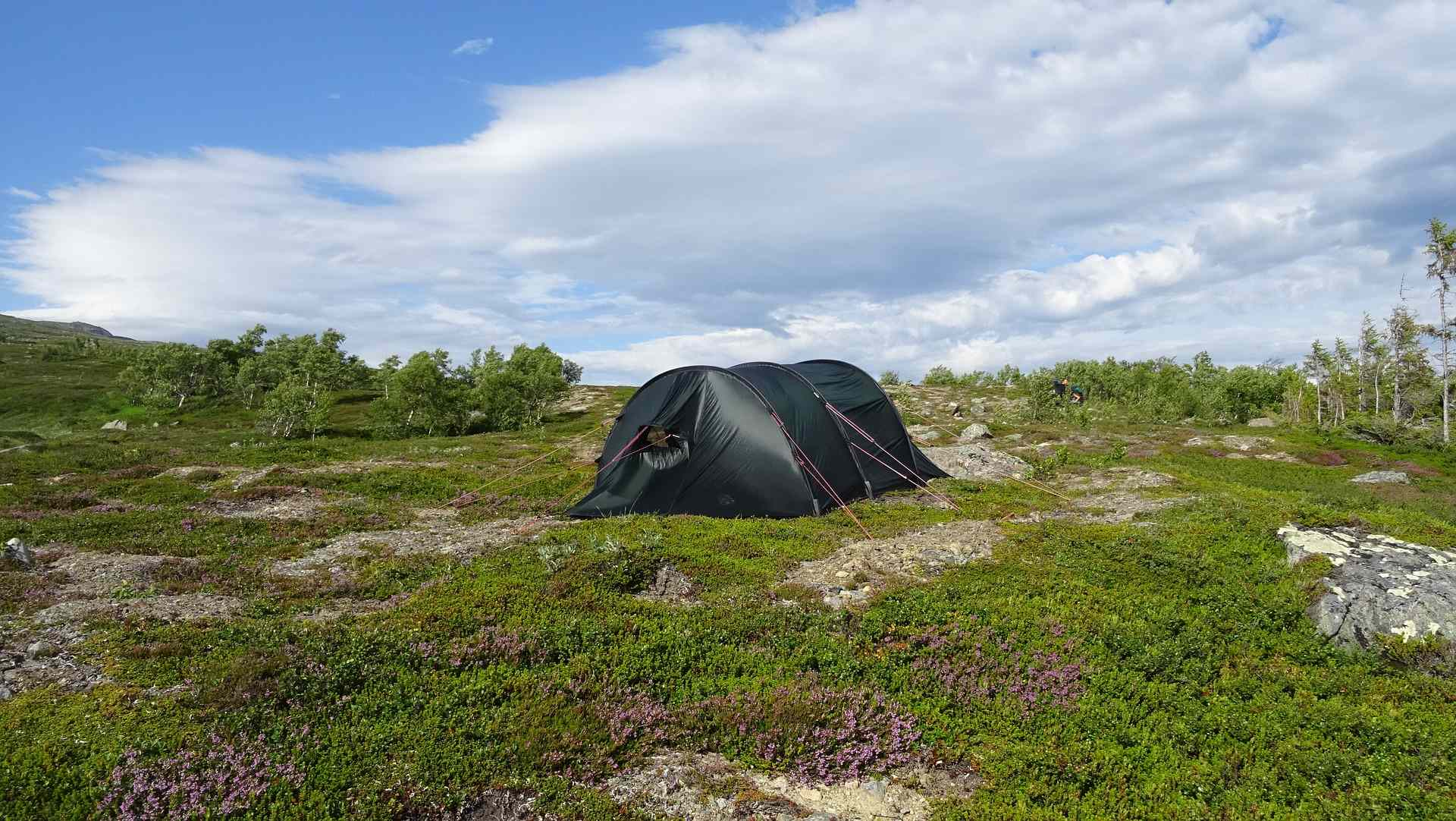
What to look out for when wild camping?
In addition to the legal regulations, you should observe a few rules of conduct on your camping trip in the wilderness:
-
Behave respectfully towards the locals and do not disturb them.
-
Stay away from residential areas and camp out of sight of houses.
-
Avoid noise - to protect the wildlife and out of consideration for local residents.
-
Always behave considerately in nature and leave everything as you found it.
-
Always take your garbage with you and dispose of it properly.
-
Do not do your business in nature, but use public or mobile toilets, for example the Boxio separation toilet.
-
Only camp in small groups. In most cases, a maximum of three small tents are tolerated in one place.
-
Be careful with open fires, including camping stoves. You should avoid it altogether near the forest.
-
Stay in the same place for a maximum of one or two nights.
-
If you are unsure whether wild camping is permitted at your chosen location, it is better to ask and obtain permission.
If you adhere to the above points and find out exactly what the law is at your vacation destination, you can enjoy the feeling of freedom when wild camping in Europe without a guilty conscience or nasty surprises.
Frequently asked questions about wild camping in Europe
Is wild camping allowed in Europe?
Wild camping is subject to the legal regulations of the respective countries. There is no uniform regulation in Europe. Whether wild camping is permitted therefore varies from country to country.
In which countries is wild camping permitted?
In the Baltic and Scandinavian countries (with the exception of Denmark) as well as in Iceland and Scotland, wild camping is generally permitted with a few restrictions. Other countries such as Switzerland and Portugal allow wild camping subject to certain conditions.
Is wild camping allowed in Germany?
In Germany, wild camping with a tent is generally prohibited. However, in many places there are designated, low-cost campsites close to nature. It is permitted to stay overnight with a motorhome in state parking lots for one night.
What penalties can I expect for unauthorized wild camping?
In Germany, wild camping is an administrative offense punishable by warnings and sometimes heavy fines. Depending on the severity of the offense, these range from 100 euros per person to a four-figure sum.
Can you sleep in the car?
Sleeping in the car is usually not a problem as long as the car is parked in a safe and legal parking space. The stay should not last longer than one night.
Is it forbidden to camp in the forest?
In many countries, wild camping in the forest is prohibited unless there are explicitly designated areas for camping. It is often worth asking the relevant forestry office.
What is a bivouac?
A bivouac is a sleeping camp in the open air, usually in a sleeping bag or hammock. As a rule, a bivouac is unplanned and is only set up in emergency situations, for example in the event of exhaustion, injury or poor weather conditions that hinder onward travel.


